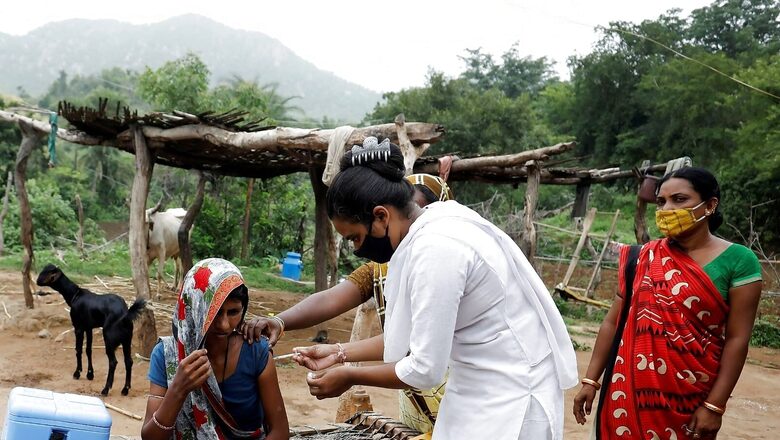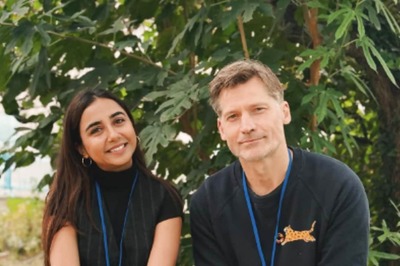
views
A ‘thermotolerant’ or ‘warm’ vaccine could prove to be a game-changer for India, considering the large population here which awaits vaccination. Mynvax, a vaccine technology startup incubated by the Indian Institute of Science’s Society for Innovation and Development (SID), is working on one such vaccine.
Before the beginning of the vaccination drive in India, the government had worked on strengthening its cold chain and storage capacities, to safely provide temperature-sensitive Covid-19 jabs to the public.
Mostly all vaccines need to be transported and distributed between 2 degree Celsius and 8 degree Celsius; called the cold chain. The World Health Organisation has said that most Covid-19 vaccines, even those in development, need to be refrigerated at temperatures considerably below 0 degrees Celsius, which is the freezing point of water.
While both Covishield and Covaxin – approved most initially by the government at the starting of the drive – don’t require sub-zero temperatures for transport and storage, Moderna and Sputnik vaccines, which were approved later, do.
In this scenario, here’s how the vaccine could benefit India:
Increased Distribution
With India’s high temperatures, far-flung remote areas, and limited capabilities in such rural areas, a vaccine that is tolerant of warm temperatures could help increase access of the jabs to the public. According to the scientists who developed the Mynvax vaccine, it can be stored at 100°C for 90 minutes, 70°C for roughly 16 hours, and 37°C for more than a month.
Julien Potet, policy adviser (vaccines) of Médecins Sans Frontières’ Access Campaign told BBC in a report that such a vaccine “can be particularly helpful for mass vaccination campaigns when hundreds of thousands of vaccine doses need to be transported to several vaccination points within a short period”.
While India already has a well-developed network of state-owned vaccine cold storage facilities, the sub-zero storage and transport requirement of several vaccine candidates could prove to be a challenge for it, along with other developing nations.
India’s cold storage capacity is one of the world’s largest, at approximately 40 million tonnes, but it primarily keeps fresh food, medicinal products, flowers, and chemicals. Much of the capacity for keeping vaccines do not meet international hygiene standards. Vaccines can readily lose their efficacy when exposed to higher temperatures, which is why they must be safeguarded from accidental freezing during transport as well as interruptions in the cold chain caused by excessive heat.
Even if the vaccine could be maintained at 2 to 8 degrees Celsius, most cold chains were built to allow for the inoculation of mostly infants. According to WHO, “when we strive to rapidly vaccinate the entire population for Covid-19,” this capacity “risks being severely insufficient.”
Less Pressure on Healthcare Workers, Infrastructure
With very specific steps to cold-chain and storage of Covid-19 vaccines, a jab with fewer requirements of externally maintaining such cold temperatures could prove to be a boon for the millions of frontline and healthcare workers involved in all parts of the vaccine drive.
Walk-in freezers, ice-lined refrigerators, refrigerated trucks, coolant packs such as dry ice, and cold boxes are used to store and keep vaccines chilled during last-mile distribution, which would not be needed with such a vaccine.
What is Known About the Mynvax Vaccine
Mynvax, a biotech company based in Bengaluru and incubated at the Indian Institute of Science (IISc), has created heat-tolerant COVID-19 vaccine formulations.
The vaccine formulations elicited a significant immune response in mice, protected hamsters from the virus, and stayed stable at 37°C for up to a month and at 100°C for up to 90 minutes, according to research published in the peer-reviewed ACS Infectious Diseases journal.
Scientists from the Australian Centre for Disease Preparedness in Geelong participated in the study by testing the efficiency of vaccinated mice sera (blood samples) against important coronavirus variants, including the Delta variant.
Dr. S.S. Vasan, project leader and co-author, said the Mynvax-vaccinated mice sera show a strong response to all variants of the live virus.
“Our data shows that all formulations of Mynvax tested result in antibodies capable of consistent and effective neutralisation of the Alpha, Beta, Gamma and Delta SARS-CoV-2 variants of concern,” Dr Vasan said, in a report by BioSpectrum.
The firm has now also signed an agreement to raise $4.2 million (31 crore) in a Series A round of funding headed by Accel to bring the ‘thermotolerant’ Covid vaccine to market.
Read all the Latest News, Breaking News and Coronavirus News here.




















Comments
0 comment